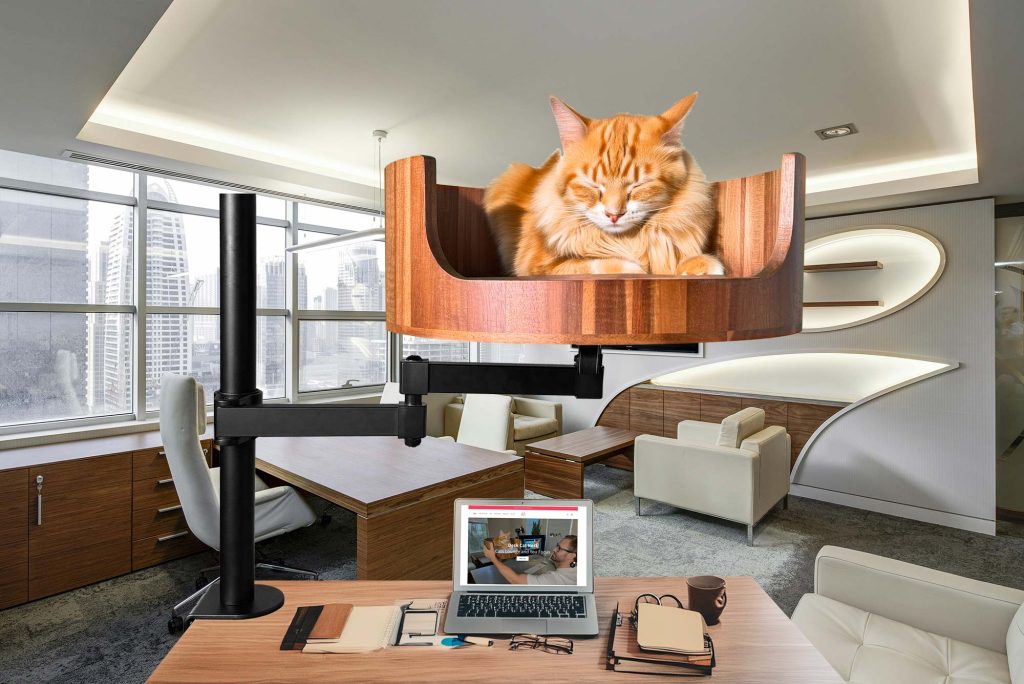Have you ever experienced the confusing behavior of your cat licking you affectionately one moment, only to bite you the next? This seemingly contradictory behavior can leave cat owners baffled and even frustrated. In this article, we will explore the reasons behind why cats exhibit this behavior, shedding light on their instincts and communication methods. Understanding why your feline friend may be biting you after licking you can help strengthen your bond and improve your relationship.
Cats are complex creatures with nuanced behaviors, and their actions often stem from a combination of instincts and past experiences. When your cat licks you, it is a sign of affection and social bonding, as grooming is a behavior seen in close relationships among cats. However, cats also have a natural instinct to use their teeth as a means of communication and defense. This can sometimes result in a seemingly affectionate lick turning into a playful nibble or even a warning bite. By delving into the reasons behind this behavior, we can learn how to better interpret our cat’s actions and respond appropriately, fostering a deeper connection with our furry companions.
1. Cats bite after licking as a way to show affection or simply because they get overstimulated during grooming.
2. Understanding your cat’s body language and cues can help prevent unexpected bites.
3. Biting can also be a form of play or a response to feeling threatened.
4. Providing appropriate toys and outlets for your cat’s energy can reduce the likelihood of biting.
5. Consistent training and positive reinforcement can help curb unwanted biting behavior in cats.
## Understanding cat behavior
Cats use licking as a way to groom themselves and their loved ones. However, sometimes this behavior can escalate to biting due to various reasons. Understanding why cats exhibit this behavior can help you improve your relationship with your furry friend.
## Overstimulation
Cats can become overstimulated during grooming sessions, leading to a bite as a way to signal that they’ve had enough. Knowing your cat’s body language and recognizing the signs of overstimulation can prevent these bites from happening.
## Playfulness
Sometimes, a cat may bite after licking as a form of playfulness. This behavior is more common in younger cats who are still learning appropriate ways to interact. Providing ample toys and playtime can help redirect this playful energy.
## Medical reasons
In some cases, a cat may bite after licking due to underlying medical issues. Pain or discomfort can cause a cat to lash out unexpectedly. If you notice a sudden change in your cat’s behavior, it’s essential to consult with a veterinarian to rule out any potential health problems.
## Establishing boundaries
Training your cat to understand boundaries and limits can help prevent biting behavior. Consistent reinforcement of positive behaviors and redirecting negative behaviors can create a harmonious relationship between you and your feline companion.
Desk Cat Nest FAQ
Why does my cat bite me after licking me?
One reason your cat may bite you after licking you is due to overstimulation. Cats can become overwhelmed with too much physical contact, leading them to bite as a way of signaling they need a break. It could also be a play behavior or aggression, so it’s essential to observe your cat’s body language and respond accordingly.
How can Desk Cat Nest help with this behavior?
Desk Cat Nest provides a cozy and safe space for your cat to retreat to when they feel overwhelmed or overstimulated. By having their own designated area to relax in, your cat can take a break from interactions with you, reducing the chances of them biting after licking.
Will Desk Cat Nest stop my cat from biting me altogether?
While Desk Cat Nest can help manage and prevent biting behavior, it may not eliminate it entirely. It’s crucial to also address any underlying issues causing your cat to bite after licking, such as stress, fear, or pain. Consistent training, positive reinforcement, and seeking guidance from a veterinarian or animal behaviorist can also be beneficial.
Is Desk Cat Nest suitable for all cat breeds?
Desk Cat Nest is designed to accommodate most cat breeds and sizes. However, it’s essential to consider your cat’s individual preferences and needs when introducing them to a new space. Some cats may prefer more open or enclosed structures, so observe your cat’s behavior to ensure Desk Cat Nest is the right fit for them.
In conclusion, providing your cat with a comfortable and safe space, such as a Desk Cat Bed, can help address the behavior of biting after licking. The Desk Cat Bed offers a cozy retreat for your cat to relax and unwind, reducing stress and anxiety. By giving your cat a designated place to rest, they are less likely to feel the need to resort to biting as a form of communication or expression. Additionally, the Desk Cat Bed’s soft and plush materials provide a soothing environment for your furry friend, encouraging positive behaviors and strengthening the bond between you and your cat. Choose the Desk Cat Bed for a peaceful and harmonious relationship with your feline companion.


